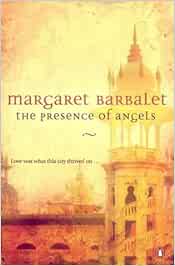
- Free Article: No
- Contents Category: Fiction
- Review Article: Yes
- Article Title: Two Novels
- Online Only: No
- Custom Highlight Text:
Mardi McConnochie’s first novel is a strange strain of literary adaptation. In Wide Sargasso Sea, Jean Rhys manufactured a life for Charlotte Brontë’s madwoman in the attic, Bertha Rochester. McConnochie goes one step further and hijacks the Brontë sisters themselves, transplanting them from their Yorkshire home to an island called Coldwater somewhere off the colony of NSW. There the sisters are literally and metaphorically imprisoned; Coldwater is a penal settlement and their father is the prison warder. Desperate to escape their probable futures as ‘bush wife, town wife or military wife’, the sisters decide they fancy their chances as authors. Coldwater facilitates this ambition by providing a backdrop where fact and fantasy can be unhappily wedded. The idea is that the collusion of isolation, violence and romance will offer these quasi-Brontës the requisite inspiration for future books. Hence a new prisoner, Finn O’Connell, ‘feral, untamed, unbowed, yet somehow noble’, becomes the prototype for Heathcliff and the desolate, inhospitable island is reconstituted as the whispering Yorkshire moors.
- Book 1 Title: The Presence of Angels
- Book 1 Biblio: Penguin, $22 pb, 291 pp
- Book 1 Cover Small (400 x 600):

- Book 2 Title: Coldwater
- Book 2 Biblio: Flamingo, $27.50 pb, 303 pp
- Book 2 Cover Small (400 x 600):

Emily, Charlotte and Anne are each granted a narrative voice. The Governor’s diary extracts and essays on penal reform are also interspersed in the tale, detailing the brutal regime of governance, where control is exercised through shackles, lashes and gallows. The sisters’ vulnerability cannot be more marked in this bleak terrain, and their plight encourages a simple dialectic between innocence and experience, subservience and megalomania, feminine arts and masculine will.
McConnochie’s metafictional, biographical tweaking is an intriguing concept – more interesting than successful. Coldwater starts out promisingly but becomes increasingly hackneyed, just as the Governor seems, at first, to be a reasonable chap, only to overdose on power and degenerate into a psychotic mess. Of course, it comes as no surprise when the carefully controlled penal colony dissolves into anarchy. Details of insurrection and retributive punishment are lovingly scattered throughout. McConnochie has done her research and handles the ghoulish aspects of daily life (circa 1847) in the penitentiary quite credibly. What’s more problematic is her unconvincing portrayal of love blooming within the ‘gates of Hell’. Indeed, despite its literary pretensions and its grim setting, Coldwater would not look out of place repackaged amongst the pretty pink rows of Mills & Boon titles.
One can argue that Jane Eyre and Wuthering Heights are themselves the epitome of the swooning romance and that McConnochie happily reaffirms the cult of the dark, brooding hero and his feisty paramour. Her novel is unashamedly romantic, escapist fare, highly improbable and melodramatic. Unfortunately, Coldwater lacks the verve, the psychological depth and, crucially, the writing prowess of the Brontës’ particular brand of literature. As a piece of literary homage, it doesn’t work. Coldwater is presented in simple, unadorned prose, with the occasional cringe-making affectation, usually from Emily, who favours capitals and dashes to emphasise her passionate nature: ‘I feel as if a Tiger has taken up residence in my breast – a rage has kindled within me which cannot be Quenched – I will not let Father crush my spirit, as he would that of a rebellious Convict.’ Quite.
The cover of The Presence of Angels features a crumbling building bathed in a golden, Turneresque glow. There is a faint outline of a woman’s face, disembodied and floating in the air and, below the title, a helpful reminder, ‘Love was what this city thrived on’. Before even opening the book or glancing at the blurb, you know that romantic idealism will also suffuse Margaret Barbalet’s fourth novel.
We are soon thrown into the sweating city of Kuala Lumpur as Barbalet zooms in on the tortured and tortuous love lives of two English blow-ins: Henry and Sally, architect and academic respectively. Though they never meet, their separate paths are mirrored and refracted; their experiences complementary. Barbarlet paints an engaging picture of KL with its heat and monsoonal rains, its congestion and competing babble of voices (a ‘Manglish’ mix of Malay, Chinese and English). At first, one suspects that the city is conveniently positioned as the exotic, colourful Other to throw into sharp relief the fumbling experiences of these expatriates. But The Presence of Angels is not just a jumped-up travelogue. It is a complex and occasionally quite beautiful meditation on the conflicting tugs of desire, faith and fate. The first instalment in a planned trilogy, the novel has perfected an air of subdued introspection.
Barbarlet is interested in exploring the exile experience in conjunction with the hurts, griefs and sacrifices of impossible relationships. Thus, when we first meet Henry, he’s stuck in gridlock on his way to escaping wedlock. Grace, his ex-fiancée, is a part of the ‘Eurasian fringe’ of KL. Their disintegrating union is painfully picked over in the stillness of the city traffic. Sally, meanwhile, is slowly negotiating the spaces vacated by the death of her ex-husband. She finds comfort in the company of Azmi, a Malaysian engineer who is himself estranged from his wife and child. The emotional baggage accumulated over past affairs is heavy indeed. Thus Henry and Grace, Sally and Azmi – these two sets of lovers – dance the bicultural tango with slow, awkward steps, straining and sighing with the effort of making the right moves.
Although essentially maintaining a love-in-a-warm-climate narrative, The Presence of Angels does not shy away from making damning comments on the white tourist trade in Asia or from emphasising the disparity in perception between local and foreign interests. Henry is enchanted by images of children playing beneath rambutan trees, chickens scratching in the dust, and old men in worn sarongs sitting in the shade of wooden houses. He sighs admiringly, ‘Now that’s picturesque’, only to be sharply corrected by Grace: ‘It’s primitive. Kampong people too poor to live anywhere. You think they don’t want a modern house?’ Sally, meanwhile, flinches with the burden of post-colonial sensitivity when explaining to Azmi her research on Somerset Maugham and Anthony Burgess, ‘I’m white and I’m doing a thesis on two white writers. And the only Malay I have mentioned is a servant!’
The Presence of Angels is, as its name suggests, a book where faith, spirituality and superstition mingle freely; where ghosts and spirits hover softly over the more mundane world of love found and lost. The prose is assured and eloquent, though at times it veers perilously close to being purplish, saved only by Barbarlet’s manipulation of the startling image. Here is Henry’s imagining of angels circling above the city: ‘Would they shake their heads, ringlets bronzed against the purple sky, and move away on wings coated, before there was time to flap, coated with carbon and a touch on the end of every pin feather, a daub of jewelled lead?’ With a steady hand, Margaret Barbalet sketches the pencil-thin line between heaven and earth. Our eyes are drawn to the skies as we wait for the second panel of her triptych.


Comments powered by CComment